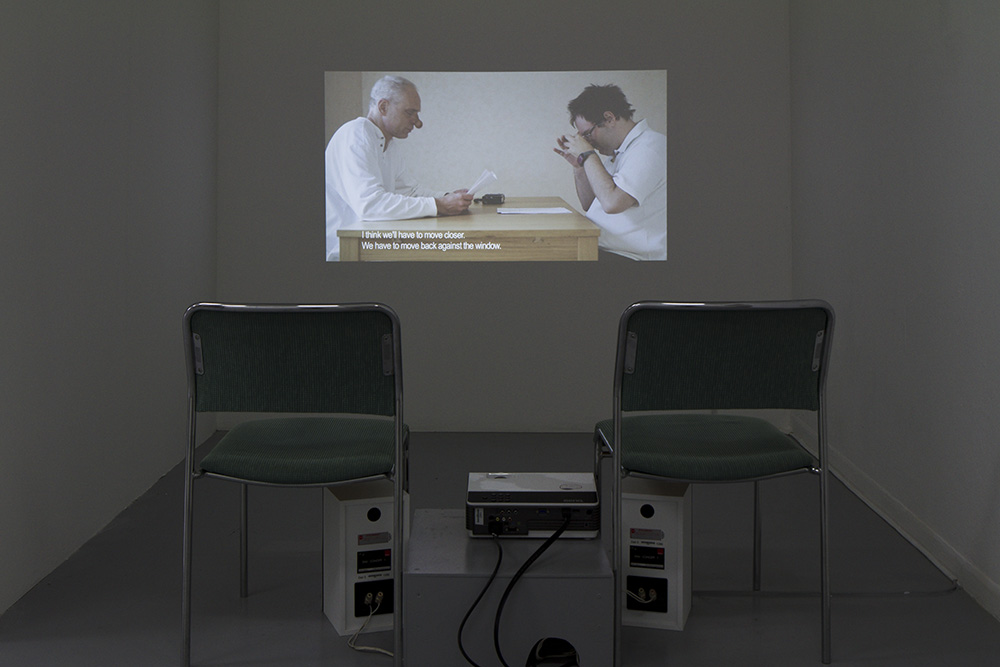
Installationsvy av videoverket Echoing Rituals på KHM gallery
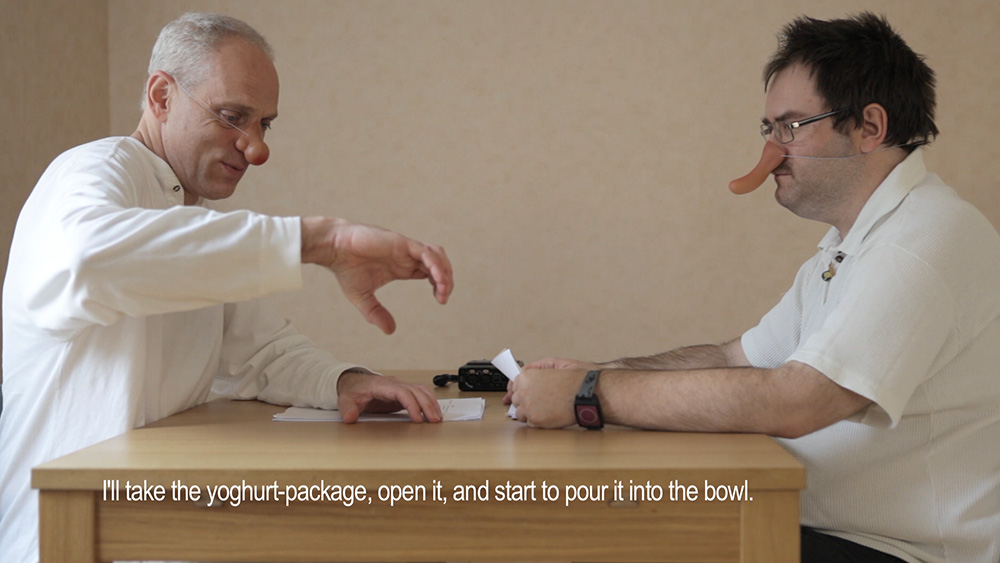
Stills från videoverket Echoing Rituals
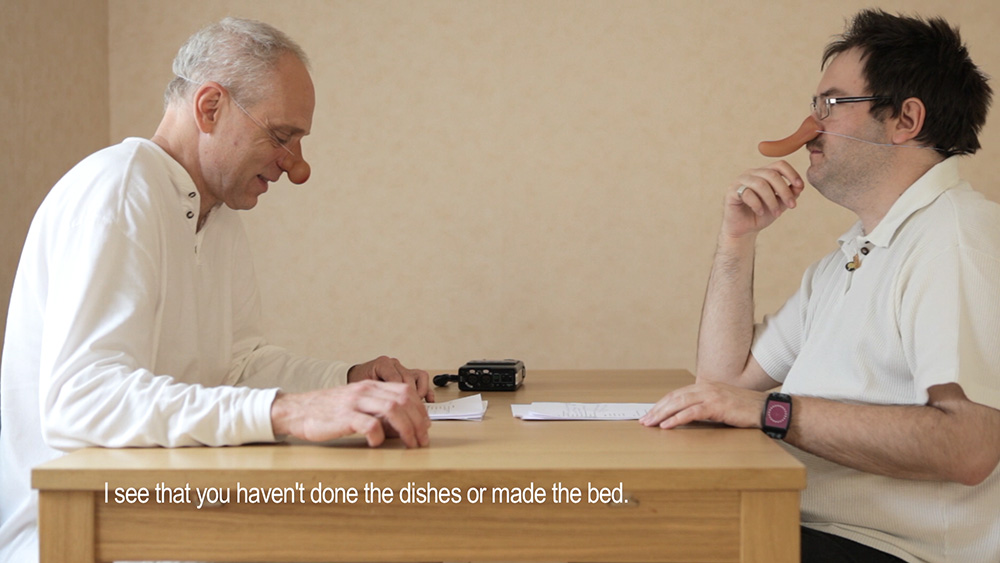
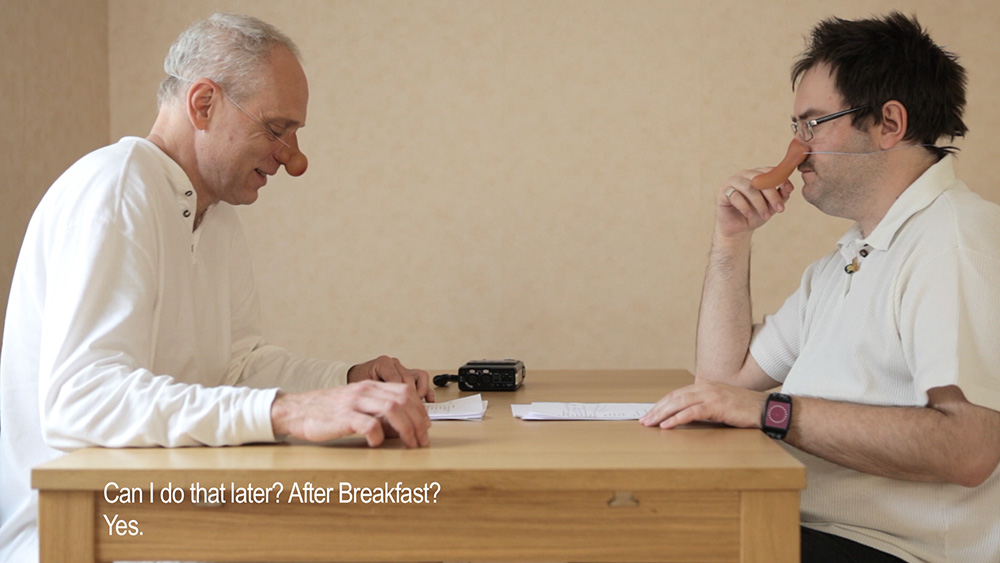
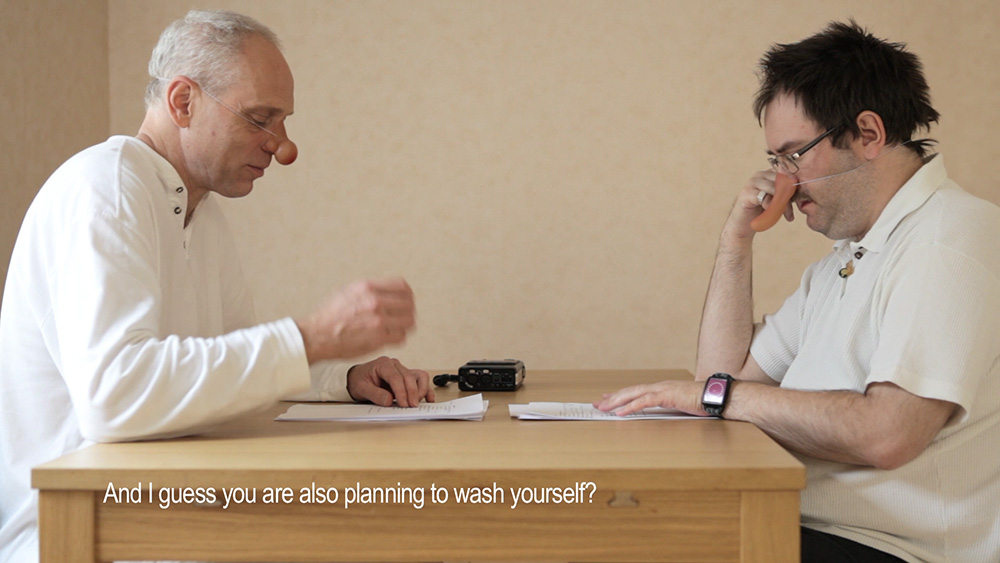
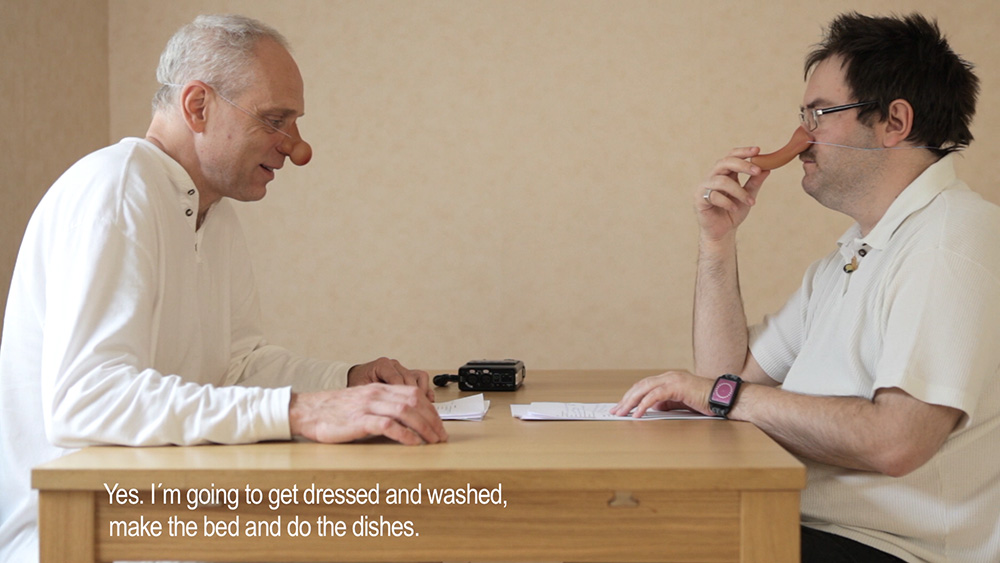
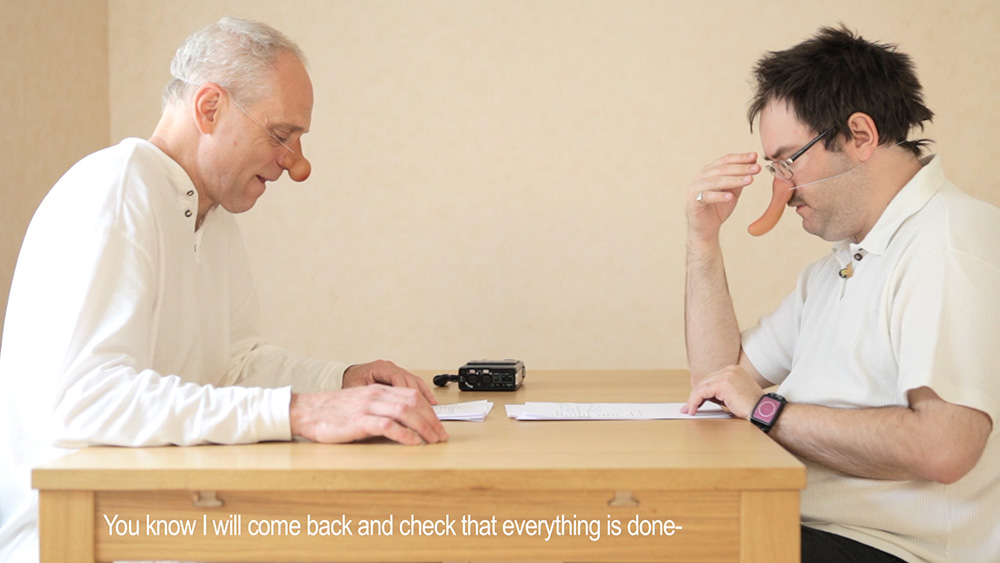
Text in English below
I en iscensättning från ett vårdboende spelar en man som är anställd och en boende upp en scen utifrån mitt manus. Mina instruktioner bakom kameran är ännu en del av filmens konstruktion. De spelar upp det schema de dagligen följer. Medicin, frukost, bädda sängen, hygien, diska och bestämma dagens lunch. Dessa dagliga rutiner som vi alla följer med mer eller mindre variation och som är våra dagliga ritualer. En handling som upprepas vid bestämda tider och på ett bestämt sätt. Ritualer kan fungera som ett skeende, som en övergång från det ena till det andra. Rullgardinen som dras upp på morgonen eller ner på kvällen. Våra vardagliga handlingar eller ritualer kan på så sätt ses som ett moraliskt handlande, ett sätt att ordna samhället.
I Övervakning och straff skriver Michel Foucault om disciplinen av kropparna, att den skapades i ögonblicket då det inte längre endast handlade om att öka kropparnas underkastelse och färdighet utan att kroppen blir lydigare ju nyttigare den är och tvärtom. På så sätt ingår människokroppen i ett maktmaskineri, disciplinen ökar kroppens krafter och dess nytta från en ekonomisk synpunkt samtidigt som den minskar i kraft från en politisk synpunkt genom att den tvingas lyda. Foucault skriver att ”disciplinen är en detaljernas politiska anatomi”. Det följer en lång tradition av detaljernas betydelse i den kristna uppfostran, skolundervisningen och den militära pedagogiken. Där är ingen detalj obetydlig, inte bara för vad som döljer sig bakom den, utan också för det grepp den erbjuder makten. Disciplinen kräver ibland en sluten miljö, en plats som skiljer sig från andra platser och är sluten i sig själv. Rummet kan bearbetas på ett ännu smidigare och subtilare sätt: genom en enkel inrutning. För varje individ finns det en plats, för varje plats en individ.
Förutom fördelning av rummet kräver disciplinen även ett tidsschema som har sitt ursprung i klostrens strikta former och som snabbt spred sig till skolorna, verkstäderna och sjukhusen. Det som låg bakom tidschemat var i grunden negativt och gick ut på att bekämpa sysslolösheten ”det är förkastligt att låta den tid gå förlorad som utmätt av Gud”, med disciplinen inrättade en positiv verkan, att hela tiden hitta nya användbara stunder och ur varje stund öka mängden användbar kraft. Det gällde att dela upp tiden i dess minsta detalj. Ett tillstånd av största möjliga produktivitet sammanföll med desto större uppdelning av tiden.
In a staged reading from a nursing home, a male employee and a resident perform a scene from my script. My verbal instructions from behind the camera become a part of the film’s construction. They act out their daily schedule – medicine, breakfast, making the bed, cleaning, washing and preparing the day’s lunch – those regular routines that we all follow with a certain amount of variety, and which make up our daily rituals. Actions that are repeated at certain times and in a certain way. Rituals can act as a process, as a transition from one thing to another. The window blind that is pulled up in the morning, or down in the evening. Our everyday actions or rituals can thus be seen as a moral act, a way of organising society.
In Discipline and Punish, Michel Foucault writes about the creation of the disciplines, a series of techniques by which the body’s operations could be controlled. He writes about how the discipline of the body was not solely directed at increasing the skills and ability of the body or the intensification of its subjection, but instead at creating a mechanism through which the body makes itself more obedient as it becomes more useful, and vice versa. In this way, the human body is part of a power structure, discipline increases the body’s forces which can
lead to certain economic benefits, while simultaneously decreasing political power due to an enforced conformity. Foucault states that ‘discipline is a political anatomy of detail’. This idea follows a long tradition of the importance of details in a Christian upbringing, school education and military training. In these institutions there are no insignificant details, not only for what the details conceal, but also for the disciplinary power that they exert over the individual. Discipline sometimes requires a closed environment, a place that differs from other places and is often self-contained. The room can be adapted in an even more flexible and subtle way: through a simple framework. For each individual there is a place, for each place an individual.
In addition to room allocation, discipline also requires a timetable that originates from the strict conventions of the monastery and which quickly found its way into schools, workhouses and hospitals. What lay behind the timetable was essentially negative, and was aimed at combating idleness, ‘it was forbidden to waste time, which was counted by God and paid for by men’. But discipline established a positive effect, the constant search for new productive periods and the increase in the amount of usable power out of every moment. It was about dividing up the time into its smallest details, a state of maximum productivity coincided with the greater division of time.